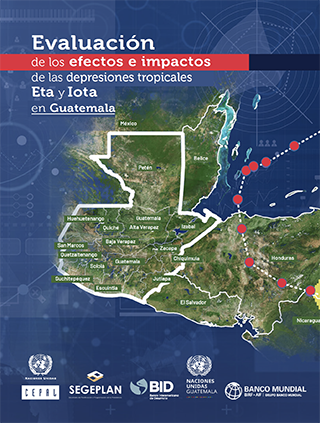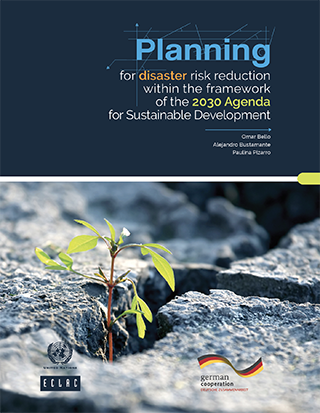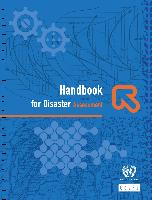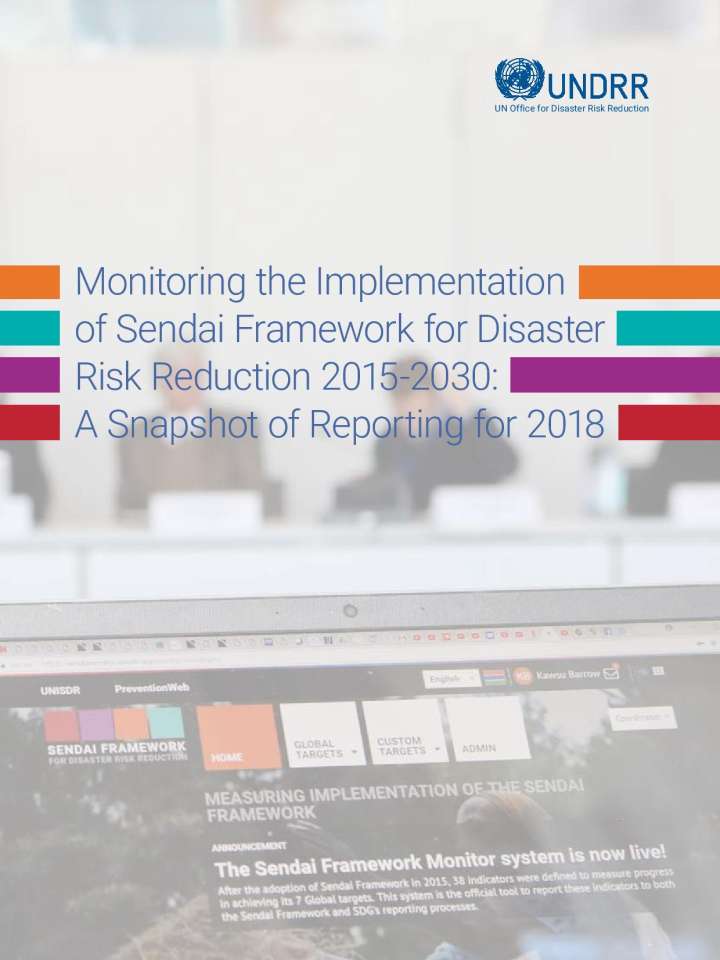Environment and climate change statistics for Latin America and the Caribbean
FDES - Component 4: Extreme Events and Disasters
This component organizes statistics on the occurrence of extreme events and disasters and their impacts on human well-being and the infrastructure of the human subsystem.
The sub-components included are:
- Natural Extreme Events and Disasters
- Technological Disasters
Documents and publications
-
Un paso hacia la resiliencia: elaboración de un instrumento integral de planificación para la gestión y reducción del riesgo de desastres destinado a los gobiernos subnacionales by
Call Number: LC/TS.2023/204Publication Date: 2024-02 -
 Evaluación de los efectos e impactos de la pandemia de COVID-19 sobre el turismo en América Latina y el Caribe: aplicación de la metodología para la evaluación de desastres (DaLA)
by
Call Number: LC/TS.2020/162Publication Date: 2021
Evaluación de los efectos e impactos de la pandemia de COVID-19 sobre el turismo en América Latina y el Caribe: aplicación de la metodología para la evaluación de desastres (DaLA)
by
Call Number: LC/TS.2020/162Publication Date: 2021 -
 Evaluación de los efectos e impactos de las depresiones tropicales Eta y Iota en Guatemala
by
Call Number: LC/TS.2021/21Publication Date: 2021-02
Evaluación de los efectos e impactos de las depresiones tropicales Eta y Iota en Guatemala
by
Call Number: LC/TS.2021/21Publication Date: 2021-02 -
 Planning for disaster risk reduction within the framework of the 2030 Agenda for Sustainable Development
by
Call Number: LC/TS.2020/108Publication Date: 2020-09
Planning for disaster risk reduction within the framework of the 2030 Agenda for Sustainable Development
by
Call Number: LC/TS.2020/108Publication Date: 2020-09 -
-
 Handbook for estimating the socio-economic and environmental effects of disasters
by
Publication Date: 20034 volumes
Handbook for estimating the socio-economic and environmental effects of disasters
by
Publication Date: 20034 volumes
LC/L.1874 - LC/MEX/G.5 -
Global Assessment Report on Disaster Risk Reduction GAR19 by
Publication Date: 2019
Databases
-
EM-DAT: la base de datos internacional sobre desastres Este enlace se abre en una nueva ventanaEM-DAT contains data on the occurrence and impacts of over 26,000 mass disasters worldwide from 1900 to the present day. The database is compiled from various sources, including UN agencies, non-governmental organizations, reinsurance companies, research institutes, and press agencies.
Emergency Events Database (EM-DAT) was created with the initial support of the World Health Organisation (WHO) and the Belgian Government. The initiative aims to rationalise decision making for disaster preparedness, as well as provide an objective base for vulnerability assessment and priority setting. -
UNSD Environmental Indicators Este enlace se abre en una nueva ventanaUNSD disseminates global environmental statistics with indicators compiled from a wide range of data sources, on ten themes: Air and climate; biodiversity; energy and minerals; forests; governance; inland water resources; land and agriculture; marine and coastal areas; natural disasters; and waste.
Methodologies and classifications
-
Institutional and methodological recommendations for the measurement of indicators for the disaster-related Sustainable Development Goals and the Sendai Framework for Disaster Risk Reduction /
Signatura: LC/CEA.11/20Fecha de publicación: 2022



